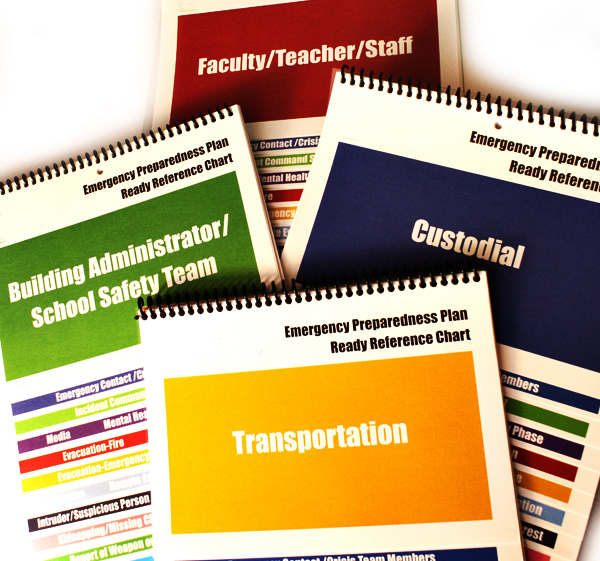
Role specific school crisis plans can help staff perform more effective mental simulation to prepare for crisis events
Role specific school crisis plans can better prepare school staff to utilize mental simulation to prepare for emergencies
As the recent school shooting in Chardon, Ohio demonstrates, any and every employee in a school may be required to take immediate action to minimize injuries and prevent the loss of human life. Properly preparing employees to handle a wide variety of emergency situations through training, empowerment and practice. This requires that role relevant and specific information be provided because different employees do not do the same thing in a crisis event. For example, a building principal in an elementary school does not perform the same action steps as a custodian, who typically performs different action steps than a food service employee or a school bus driver. As another example, if all employees in a school operate off of the same emergency planning component and an action step is to call 911, all 75 employees in a school may be tied up for several minutes while they jam the 911 center with redundant calls.
There are several ways to address role specific school crisis planning. One of these approaches involves the creation of role specific emergency charts for key job classifications as has been done as a statewide planning concept in Wisconsin and Indiana. While this approach requires far more time in the plan development phase, it can reduce the amount of training time needed for a large number of employees. Emergency reference charts should not be viewed as an instructional manual to follow step by step during the first critical seconds of a crisis. Instead they are a valuable tool to help staff develop what Dr. Gary Klein refers to as a base of knowledge. Klein’s research shows that people can perform exceptionally well in making life and death decisions but they need practice using a concept known as mental simulation. For school employees to get increased benefit from this research – based concept, they need to be provided appropriate responses to a wide array of situations rather than just a few situations that we fear the most like active shooter situations.
Role specific planning is one way to help afford a variety of school employees with a good framework of experience so they can be more prepared to meet any crisis situation they encounter. American educators have been forced to address a wide range of crisis events such as the September 11 terrorist attacks which required immediate action by school officials, an antipersonnel grenade detonating in a rural Georgia high school band room, a teacher committing suicide in a homemade gas chamber he constructed and a number of other seemingly bizarre incidents that most schools would not plan for specifically. Role specific school crisis planning can be a valuable school safety tool.